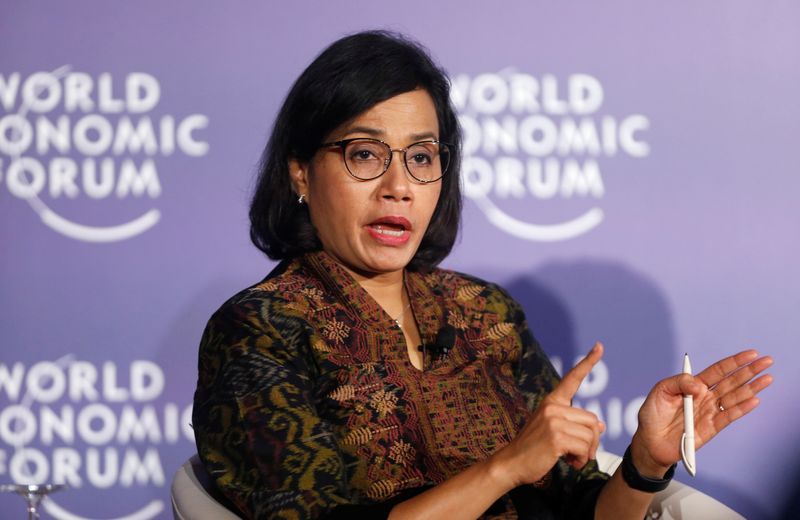JAKARTA (Reuters) – Indonesian Finance Minister Sri Mulyani Indrawati said on Friday that Bank Indonesia (BI) will buy government debt with zero return for only this year and also pledged the central bank will stay independent despite concerns its mandate may change.
Indrawati made the remark following President Joko Widodo’s comment earlier this week that the “burden-sharing” scheme with the central bank may continue to next year.
BI has pledged to buy $28 billion of government bonds while relinquishing interest payments, as part of a $40 billion fiscal financing deal with the government to fight the impact of the coronavirus pandemic.
Meanwhile, a panel advising parliament proposed that BI have its mandate expanded to include economic growth and give ministers the right to vote at policy meetings, which economists said could disrupt its independence.
Widodo’s comment, as well as concerns over the proposed changes to the central bank law, sent the rupiah tumbling by as much as 1.6% on Wednesday.
Indrawati also told a virtual news conference that the government has not started discussion on the bill initiated by parliament and pledged to maintain BI’s independence.
“The government stance is very clear that monetary policy has to remain credible, effective and independent,” she said. “There must be a competent check and balance mechanism in place.”
Indrawati acknowledged, however, that the government is carrying out a review of the country’s financial stability framework to mitigate risks including to its banking sector, as the coronavirus outbreak hit the economy, which in the second quarter posted its first contraction since 1999.
“Indonesia once implemented a system where the banking and the monetary authority were under one roof, as well as a separate system as it is today,” she said.
“Each system has its advantages and disadvantages that need to be studied more carefully in order to strengthen the banking supervisory system.”
(Reporting by Tabita Diela and Fransiska Nangoy; Editing by Andrew Cawthorne)


















